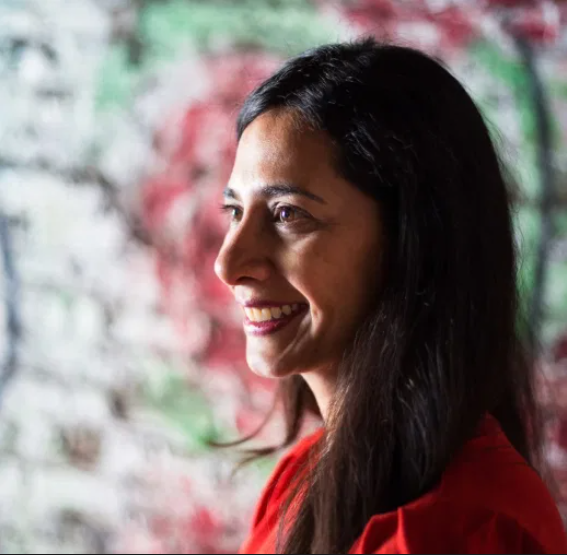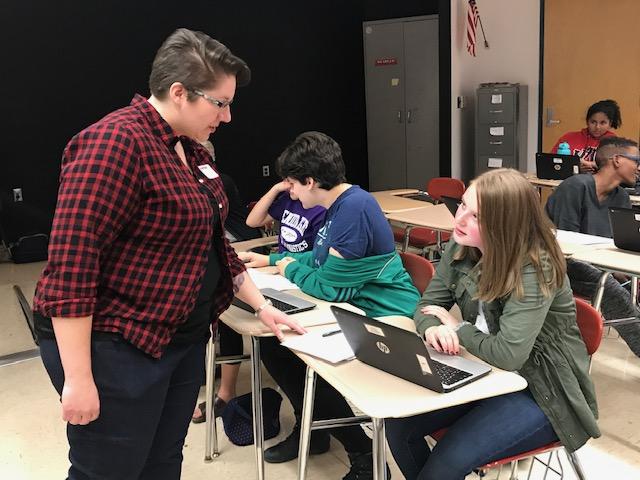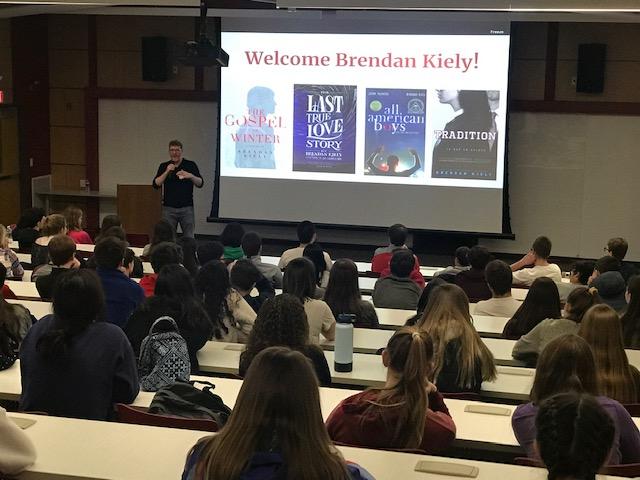

In 2020, activist and a New York Times bestselling author, Samira Ahmed published her most recent book, Mad, Bad & Dangerous to Know, and just a few years earlier, Internment, and Love Hate & Other Filters, heavily focusing on the oppression of minorities and the value of buried stories. Ahmed, raised in the suburbs outside of Chicago, grew up as any other bookworm would—fascinated with words and always devouring new books—and later graduated with a bachelor’s degree. Soon after, she became a high school teacher. However, as she grew up in a post-9/11 America that was facing racism, sexism, and islamophobia, Ahmed felt the urge to take on these injustices while simultaneously following her passion: writing.
This soon led to the writing and publishing of her first novel: Love Hate & Other Filters. It follows the journey of Maya Aziz, an Indian-American Muslim teenager bursting with curiosity and energy to explore the world outside of her strict, traditional home. However, while deliberating over what is best for her future as a person and photographer, a domestic attack of terrorism was launched against the U.S, causing Maya and her family to become victims of xenophobia and islamophobia. As Maya so eloquently states, “It’s selfish and horrible, but in this terrible moment, all I want is to be a plain old American teenager… who isn’t a presumed terrorist first and an American second.” Taking a powerful stance through a teenager’s eyes on how fear-driven discrimination affects innocent people, Ahmed exposes the inner workings of a federal and societal system that turns on anyone who looks different.

Similarly, Ahmed’s second book—Internment—dares to look at a possible future where the government has turned on its people—specifically, people who practice Islam. With thousands of Muslim-Americans being brutally forced into internment camps—their books burned, prisoners assigned ID numbers, people divided, and an unapologetic government dismantling any hope or resisters—seventeen-year-old Layla Amin with her terrorized family are among these prisoners. Layla, refusing to fall for the government’s anti-Muslim rhetoric, leads a fierce revolution to take down the establishment and return to Muslim-American’s their rightful freedoms. Dedicating Internment to showing what can stem from ignorance and no historical outlook, Ahmed conceptualizes for her readers the consequences of feeding into an anti-different sentiment that can rapidly spread across a blind nation if people don’t speak up. As Internment states, “What’s that thing people always say about history? Unless we know our history, we’re doomed to repeat it? Never forget? Isn’t that the lesson? But we always forget. Forgetting is in the American grain.”
Ahmed’s most recent book, published April 7th, 2020, Mad, Bad & Dangerous to Know, gathered nation-wide attention as two complex, separate stories intertwined into one. Mad, Bad & Dangerous to Know follows the captivating story of seventeen-year-old Khayyam Maquet—American, French, Indian, and Muslim girl—in Paris, with her life in shambles from drama back at home. Two hundred years earlier, an “enigmatic 19th-century Muslim woman” named Leila is trying to survive as part of a pasha’s harem, especially with the pasha dubbing her his favorite, while she is secretly romantically invested in someone else. However, as Khayyam struggles to dig up a forgotten woman’s life, her story is all around ignored. Ahmed, as part of this book, created the #writeherstory trend to commemorate all the valuable stories and historical tales experienced by women that have since been ignored and hidden by a system that ignorantly idolizes mens’ stories. During an interview with Little Brown Library, Ahmed explained that she wanted her readers to take away a sense of dignity and freedom from Mad, Bad & Dangerous to Know, stating, “[to be able to] live life on [their] terms and combat the sinister forces of silent complicity and overt oppression.”

Since her first book, Ahmed has challenged oppressive societal norms, putting a strong emphasis on the horrific disenfranchisement of minorities and the value of buried stories. From uncovering the brutal xenophobia that afflicts the inner workings of our federal and societal system to highlighting the necessity to educate ourselves on our nation’s history, to avoid forgetting powerful stories and repeating dark moments, Ahmed confronts injustice and promotes the value of activism through her passion for writing. As Ahmed says best herself in an interview with Little Brown Library: “Reading is resistance.”
To learn more about Samira Ahmed, visit her website at samiraahmed.com
Sources:
Ahmed, Samira, and Monica Hesse. “A Conversation with Samira Ahmed and Monica Hesse, Authors of Internment and The War Outside.” Hachette Book Group, 23 Jan. 2020, www.littlebrownlibrary.com/little-brown-school-and-library/a-conversation-with-samira-ahmed-monica-hesse-authors-of-internment-and-the-war-outside/.































